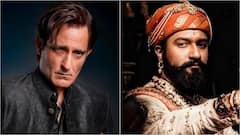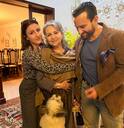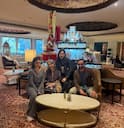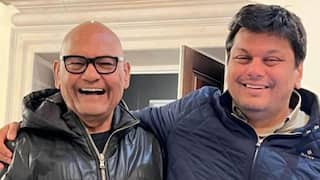Who is Sacheen Littlefeather? Native American Activist Who Received Apology From Academy Awards After 50 Years
50 years after her speech, Sacheen Littlefeather has received an apology from the Academy Awards. In its apology, the Academy stated that Littlefeather had endured "unjustified and unwarranted" abuse.

New Delhi: It was 1973, the first year the Oscars were broadcast internationally via satellite, and Native American activist Sacheen Littlefeather went to the stage to refuse an Oscar on behalf of Marlon Brando, who had won the best actor prize for The Godfather. Brando rejected the award because of the misrepresentation of Native Americans by the US film industry. She read out the speech prepared by Brando amidst booing. Sacheen was mocked later, given “tomahawk chops” offstage, and even threatened with arrest and physical assault.
50 years after creating history, 50 years after the humiliation, Sacheen Littlefeather received an apology from the Academy Awards. In its apology, the Academy stated that Littlefeather had endured "unjustified and unwarranted" abuse after her short speech during the ceremony.
The statement of apology will be read in full at the Sept. 17 Academy Museum event honoring Littlefeather, who will participate in a conversation with producer Bird Runningwater, co-chair of the Academy’s Indigenous Alliance.
Reacting to the apology, Littlefeather told Hollywood Reporter, "I never thought I'd live to see the day I would be hearing this." She also said in jest that it’s only been 50 years. “Regarding the Academy’s apology to me, we Indians are very patient people—it’s only been 50 years! We need to keep our sense of humor about this at all times. It’s our method of survival,” said Littlefeather.
Littlefeather, then 26, was shunned by the entertainment industry following her speech.
Who is Sacheen Littlefeather
Sacheen Littlefeather is an American actress and Native American civil rights activist. Littlefeather was born to a Native American (Apache and Yaqui) father and a European American mother on November 14, 1946.
She attended California State College at Hayward and studied dramatics and speech. During the 1969 occupation of Alcatraz, she became involved in the Native American activist community.
She adopted the name Sacheen Littlefeather. Her father called her Sacheen before he died, while Littlefeather came from the feather she always wore in her hair. Sacheen means "little bear."
Littlefeather had met Marlon Brando previous to the Oscar speech due to their interest in the indigenous movement.
Before the ceremony, Brando decided that he would boycott as a protest led by American Indian Movement (AIM) against the ongoing siege at a town called Wounded Knee and his views on how Native Americans were represented in American films. He called Littlefeather and asked her to appear on his behalf.
What happened on the award night
Littlefeather was accompanied by Brando's secretary, Alice Marchak. She reached the stage wearing an Apache buckskin dress, raised her hand to decline the Oscar trophy that Moore offered her, and read this: “Hello. My name is Sacheen Littlefeather. I'm Apache and I am president of the National Native American Affirmative Image Committee. I'm representing Marlon Brando this evening, and he has asked me to tell you in a very long speech which I cannot share with you presently, because of time, but I will be glad to share with the press afterwards, that he very regretfully cannot accept this very generous award. And the reasons for this being are the treatment of American Indians today by the film industry – excuse me... [boos and cheers] and on television in movie re-runs, and also with recent happenings at Wounded Knee. I beg at this time that I have not intruded upon this evening, and that we will in the future, our hearts and our understandings will meet with love and generosity. Thank you on behalf of Marlon Brando. “
It was later revealed that John Wayne was waiting in the wings and had to be restrained by six security guards to prevent him from forcing her off stage.
The original speech written by Brando was 739-word but the award ceremony's team instructed Littlefeather to keep it to 60 seconds. She later read the full speech at the press conference.
Blacklisted by Hollywood
Littlefeather was blacklisted by Hollywood as a result of her speech and her career as an actress never took off. In a recent conversation with A Frame, Littlefeather said: "It was met with such hostility and anger, and I nearly paid the price with my life as a result. When I went back to Marlon's house, there was an incident with people shooting at me. And there were two bullet holes that came through the doorway of where I was standing, and I was on the other side of it...It's situations like this that make you really think, you know, what if, what if, what if? And yet, I was never allowed to tell my story. Never. Never. And now, 50 years or so later, and here we are for the first time."
In 2018 Littlefeather was diagnosed with stage 4 breast cancer. Last year, she revealed that the cancer had metastasized to her lung and she was terminally ill.
Read Academy's Full Statement of Reconciliation
Dear Sacheen Littlefeather,
I write to you today a letter that has been a long time coming on behalf of the Academy of Motion Picture Arts and Sciences, with humble acknowledgment of your experience at the 45th Academy Awards.
As you stood on the Oscars stage in 1973 to not accept the Oscar on behalf of Marlon Brando, in recognition of the misrepresentation and mistreatment of Native American people by the film industry, you made a powerful statement that continues to remind us of the necessity of respect and the importance of human dignity.
The abuse you endured because of this statement was unwarranted and unjustified. The emotional burden you have lived through and the cost to your own career in our industry are irreparable. For too long the courage you showed has been unacknowledged. For this, we offer both our deepest apologies and our sincere admiration.
We cannot realize the Academy's mission to "inspire imagination and connect the world through cinema" without a commitment to facilitating the broadest representation and inclusion reflective of our diverse global population.
Today, nearly 50 years later, and with the guidance of the Academy’s Indigenous Alliance, we are firm in our commitment to ensuring indigenous voices—the original storytellers—are visible, respected contributors to the global film community. We are dedicated to fostering a more inclusive, respectful industry that leverages a balance of art and activism to be a driving force for progress.
We hope you receive this letter in the spirit of reconciliation and as recognition of your essential role in our journey as an organization. You are forever respectfully engrained in our history.
With warmest regards,
David Rubin
President, Academy of Motion Picture Arts and Sciences





































